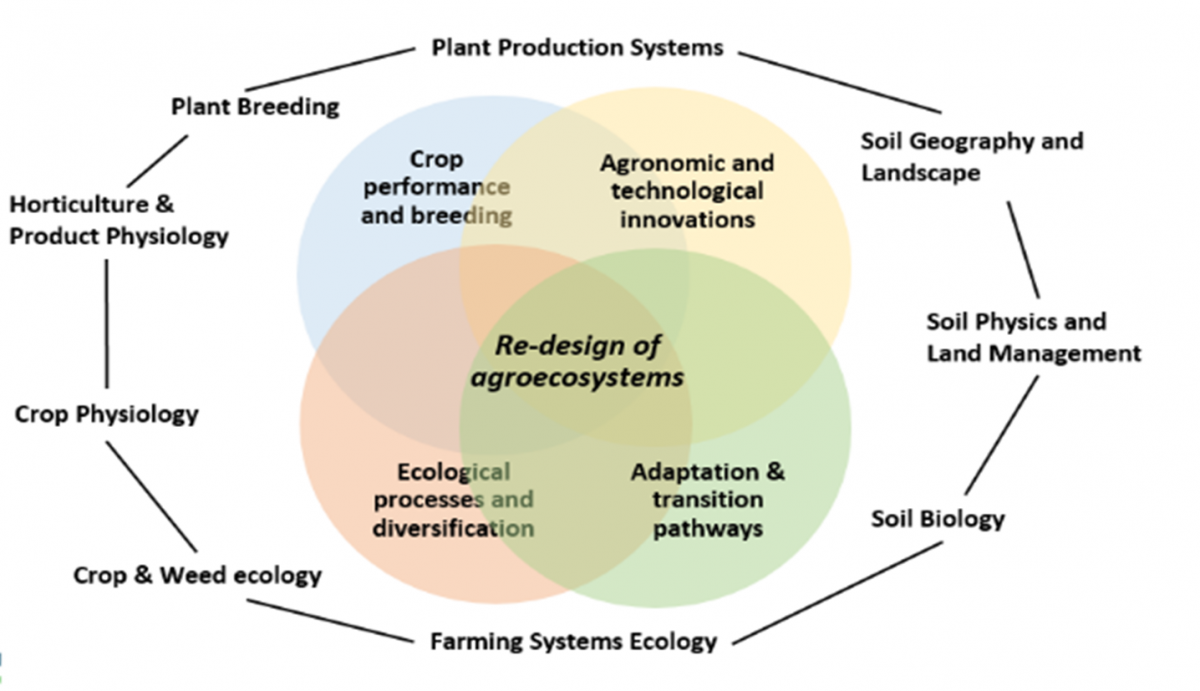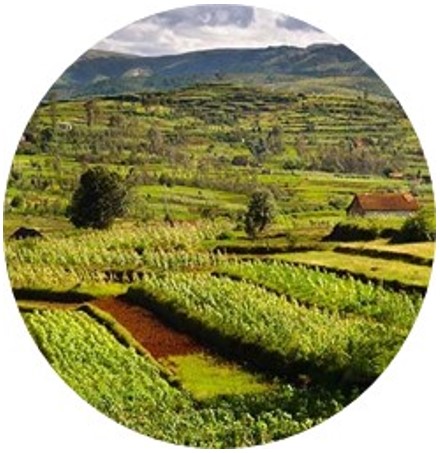Re-design of agroecosystems theme
You are here
Re-design of agroecosystems theme
Agriculture is at a crossroads. Solutions are needed to ensure that present and future systems can produce food in sufficient quantity and quality for the growing population. Yet, agroecosystems must provide more than food, including a wide variety of ecosystem services, while contributing to biodiversity conservation and ensuring resilience in the face of shocks. These multiple challenges call for combined efforts from researchers and other stakeholders to (re-)design sustainable agroecosystems to facilitate the transition to a more circular and sustainable agriculture.
The research theme re-design of agroecosystems entails a deep understanding of plant and ecosystem functioning and societal demands as well as the co-creation of feasible management strategies considering contrasting (and changing) socio-ecological contexts.
Our mission is to assess and design sustainable agroecosystems focused on the provision of multiple ecosystem services, resilience capacity and equitable management of natural resources contributing to global food security, resource conservation and societal well-being.
Our mission is addressed through four research areas: 1) crop performance and breeding, 2) agronomic and technological innovations, 3) ecological processes and diversification, and 4) adaptation and transformation pathways.

The theme sees opportunities around four fundamental scientific challenges, namely:
1. Resource use efficiency
2. Scaling across hierarchical levels
3. Emergent properties
4. Resilience
These scientific challenges are cross-cutting and require development in terms of theory, methodology and practice.
The future of the research theme is promising due to the broad scope, high quality and impact of the work currently developed. The size (nine chair groups)[1] and combination of expertise of the theme put us in an ideal position to make steps in research on ecological redesign that cannot be made by individual chair groups or through bilateral collaborations alone. The challenge for the coming years will be to develop a coherent research strategy that builds on our strengths and helps us tackle the issues we deal with while simultaneously maintaining a healthy and diverse working environment for PhD students and employees.
Under the following link (PE&RC long-term courses) you will find courses such as, Redesign to optimize Resource Use Efficiency, Farming Systems and Rural Livelihoods; Advances in Intercropping; Soil Ecology and Crop Physiology (and Climate Change), among others, that match the Re-design of Agroecosystems Theme. Discussion groups like The WUR Game Hub; Sharing Knowledge in Photosynthesis Research; Soil Fertility Management through a Transdisciplinary Lens are also part of the Theme and can be found at PE&RC Discussion Groups.
[1] Crop Physiology (CP) and Crop & Weed Ecology (CWE) which together form the Centre for Crop Systems Analysis (CSA); Farming Systems Ecology (FSE); Horticulture and Product Physiology (HPP); Plant Breeding (PBR); Plant Production Systems (PPS) and three groups from the Soil Cluster: Soil Biology (SBL); Soil Geography and Landscape (SGL) and Soil Physics and Land Management (SLM).

